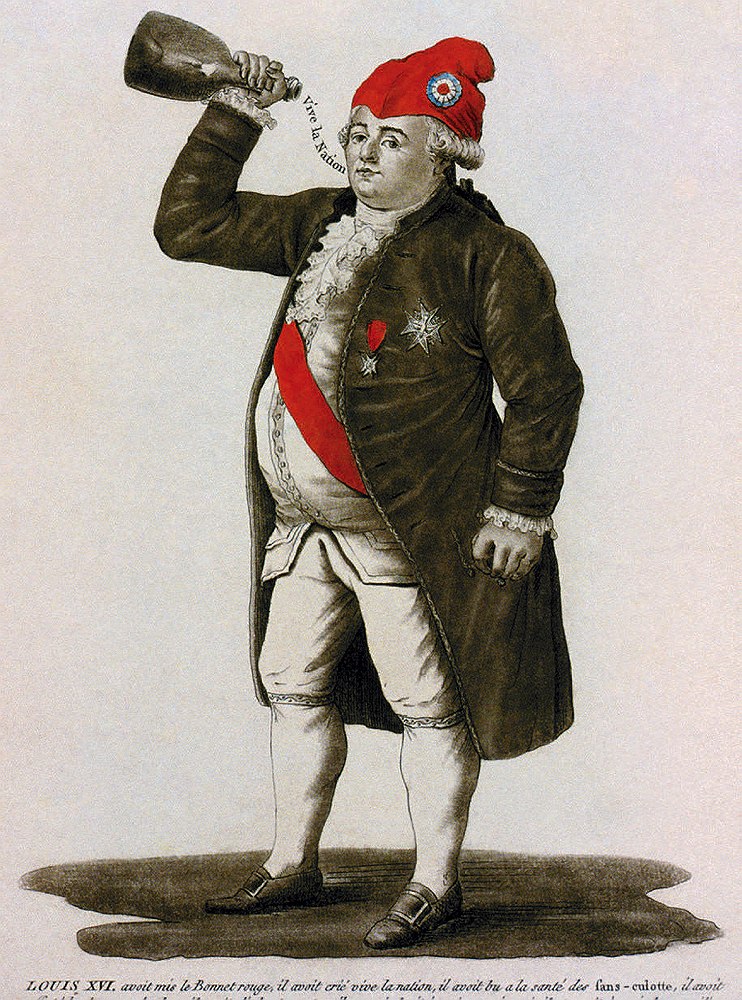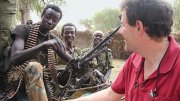Why We Vote, by Owen M. Fiss, LL.B. ’64 (Oxford, $27.95). Yale’s Sterling Professor of Law emeritus argues that the commitment to democracy is embedded within the Constitution—and secured by citizens’ right to vote, have those votes counted equally, and have a choice among independent parties and candidates. As voting rights are increasingly subject to partisan manipulation, Fiss summons the judiciary to the essential responsibility of “acting for a near transcendent and now especially urgent purpose—to honor the democratic aspirations of the Constitution.”
New Cold Wars: China’s Rise, Russia’s Invasion, and America’s Struggle to Defend the West, by David E. Sanger ’82 (Crown, $33). The New York Times’s White House and national security correspondent makes explicit the meaning of the war in Ukraine and sharp U.S.-China differences over Taiwan, technology, trade, and spheres of influence: that superpower rivalry is very much alive again. Donald Trump’s cavalier attitude toward NATO only underscores Americans’ splintered outlook amid these challenges. Citing then-chairman of the Joint Chiefs of Staff General Mark A. Milley, Sanger notes of trench war in Ukraine, the new geopolitical era is “part 1914, part 1941, and part 2022. All at once.”
The Fractured Voice: Silence and Power in Imperial Roman Literature, by Amy A. Koenig, Ph.D. ’17 (University of Wisconsin, $99.95). An assistant professor of classics at Hamilton College melds ancient texts with modern disability studies to illuminate physical muteness. Think of Philomela, Tereus, and Procne in the Metamorphoses (“A tyrant marries one sister, rapes the other, and cuts out her tongue to prevent discovery”—but is brutally revenged). This study of voicelessness turns out to reveal much about a culture in which “both being able to speak and being spoken about were particularly crucial”— thus resembling contemporary, celebrity-soaked politics and more.
Chasing Hope: A Reporter’s Life, by Nicholas Kristof ’82 (Knopf, $32). The New York Times columnist, two-time Pulitzer Prize winner, and former Overseer, can at times seem impossibly good, reminding his readers of those suffering or in need around this country and the world. So, it is good to be reminded of the impulse that animates him: narrating what seems likely to end in a plane crash in rebel-held Zaire, Kristof begins his memoir, “Journalism is an act of hope. What impels reporters forward is our faith that if we get the story and shine a light in the darkness, the public will respond and change will come.”
How to Become Famous, by Cass R. Sunstein, Walmsley University Professor (Harvard Business Review Press, $30). The exhaustingly productive Sunstein (see “The Legal Olympian,” January-February 2015, page 43), interested in everything from legal intricacies to social science interstices, here deploys “eminence studies,” life trajectories, informational cascades, and power law graphs to find out who, over time, has “it.” The analysis may drain the subject of fun for some readers, or light up others, but it is surely entertaining to follow where the polymathic scholar’s passion for the Beatles leads him.
Second Chances: Shakespeare & Freud, by Stephen Greenblatt, Cogan University Professor, and Adam Phillips (Yale, $28). A preeminent humanities scholar and a psychoanalyst-essayist jointly explore renewal in literature and life. Their fresh readings spring from the realization that, as Greenblatt writes, “It is as if the longing for a second chance were so central to our existence as human beings that we contrive to reproduce that longing again and again in symbolic form”—beginning in such stories as the biblical Flood and its Mesopotamian antecedents.
Quanta and Fields: The Biggest Ideas in the Universe, by Sean Carroll, Ph.D. ’93 (Dutton, $26). As if the Johns Hopkins cosmologist and Homewood professor of natural philosophy (physics meets philosophy) didn’t have enough on his plate, he’s writing a trilogy explaining modern theory to nonscientists. This second volume briskly sets a high hurdle for itself: “Quantum mechanics is, according to our best current understanding, the way the world works.” Aligning himself with readers right away, he continues, “Don’t feel bad if the ideas…seem alien at first.” Although physicists are “extremely good at using quantum mechanics,” he confides, they “don’t agree on what, at rock bottom, quantum mechanics actually says.” The subject is “a bit of a black box.” Grab Carroll’s amenable hand, and jump in. Note: there is still plenty of math en route.
The Unnaming of Kroeber Hall: Language, Memory, and Indigenous California, by Andrew Garrett ’83, Ph.D. ’90 (MIT Press, $55 paper). A Berkeley linguistics professor who knows a lot about California Indian languages reexamines the work of pioneering cultural anthropologist Alfred L. Kroeber in light of the decision to remove his name from a building on that campus in 2021. During a period of reconsidering monuments and other memorials (named buildings, professorships, and so on) and of heightened sensitivity to Indigenous remains and cultures, this detailed, thoughtful narrative concludes on a cautionary note: “Erasure pervades this story.”
Late Admissions: Confessions of a Black Conservative, by Glenn C. Loury (W.W. Norton, $32.50). The author, who was in the economics department and then at the Kennedy School from 1982 to 1991, was variously a Reagan Republican, born-again Christian, Barack Obama critic, Hillary Clinton supporter, and Donald Trump supporter and then critic. He sets up a disquieting dynamic, daring the reader to “search me out” while he tries to “get you to call off the search.” In the course of telling “things about myself that no one would want anybody to think was true of them,” Loury describes inter alia, friendships, political acquaintances, and his affection for cocaine.
Genetic Reconstruction of the Past, by Henry A. Erlich ’65 (Oxford, $34.95). A retired academic and industrial research scientist has crafted an accessible, engaging history of the development of PCR (polymerase chain reaction) technology to amplify DNA sequences, and its application to the past: recently (as in forensics and the unraveling of crimes) and long ago (as in Harvard professor of genetics David Reich’s pathbreaking studies of human evolution and migration). A twofer: more reliable justice, and better appreciation of humans’ shared ancestry.

Age of Revolutions: Progress and Backlash from 1600 to the Present, by Fareed Zakaria, Ph.D. ’93, LL.D. ’12 (W.W. Norton, $29.99). Yet another media (CNN) international relations pundit tries to make sense of the world today, surveying everything from the French Revolution to the Industrial Revolution in order to understand “dramatic, radical change” encompassing globalization (perhaps now in retreat), technology, identity, and geopolitics. His conclusions—“Will populist ideology fill the hole in the heart created by modernity? I doubt it.”—may, or may not, help you make sense of the world.
Judaism Is about Love: Recovering the Heart of Jewish Life, by Shai Held ’94, Ph.D. ’11 (Farrar, Straus and Giroux, $35). A rabbi, former Harvard Hillel staffer, and cofounder of the Hadar Institute, a school for Jewish theological study, reframes Judaism in terms of God’s love rather than, perhaps stereotypically, as a religion of law and justice. Whoever you are, the first sentence is a stopper: “Judaism is not what you think it is.” The faithful, he maintains, are “commanded to love God, the neighbor, the stranger—and all of humanity—and we are told that the highest achievement of which we are capable is to live with compassion.” That commandment has obviously been tested—to an inhuman degree in the Holocaust—as it is again today.
red helicopter—a parable for our times: lead change with kindness, by James Rhee ’93, J.D. ’98 (HarperOne $29.99). The author is an entrepreneur/investor/“impact leader” who identifies and unleashes “purpose through the systemic union of mathematical and creative systems” (per his MIT Sloan biography). The book version is of a piece with its genre: “Consider what follows…as a dynamic framework for starting up or pivoting a business—or a life.…[Y]ou’ll realize that adopting only a few core principles can change the trajectory of a business—and more importantly, maybe even the business that is you.”
Last House, by Jessica Shattuck ’94 (William Morrow, $28). A multigenerational family saga, spanning the American Imperium from 1953 forward, when the postwar trajectory, fueled by American Oil, was ever upward—until it wasn’t. A sort of dramatis personae in fact is a “partial list of products made from oil,” beginning with gasoline and engine oil and expanding many, many lines to essentials of Americana including “AstroTurf, sand, toys, sunscreen, airplanes, artificial body parts.”








